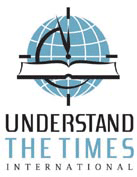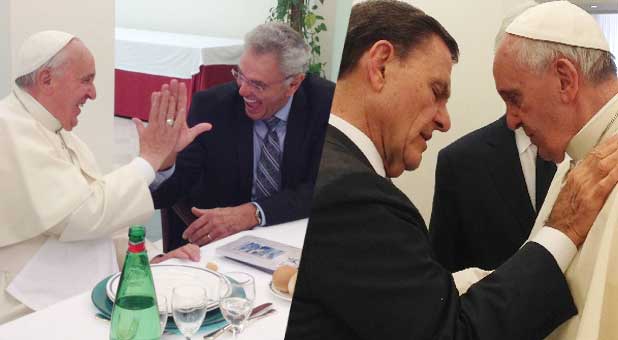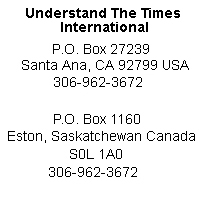|
A promoter of Catholic-Pentecostal relations believes Pope Francis is opening up dialogue between Catholics and Pentecostals. Calisi spoke with ZENIT on his friendship with Pastor Giovanni Traettino, his views on the significance of the Pope’s meeting with Pentecostals in Caserta, as well as what this means for ecumenical dialogue.
*** ZENIT: Could you speak about the Pope’s visit to the Evangelical Church in Caserta? Calisi: The visit of Pope Francis to the Evangelical Church in Caserta on July 28, 2014, as it is well known, had a private character even though the event had a historic significance. It is the first time that a Pontiff has visited an Evangelical Pentecostal Church, and even though it may sound unusual to many of us, we must remember that Pope Francis, when he was archbishop of Buenos Aires, had stable relationships with the Pentecostal Churches of his town and used to attend several private and public meetings with representatives of these Evangelical communities. ZENIT: Have you personally had the opportunity to observe this yourself? Calisi: I have had the privilege to witness this process, which started in 2003 in Buenos Aires and continues still today, that has led to the birth of the ecumenical initiative called "Renewed communion between Catholics and Evangelicals in the Holy Spirit" (CRECES). Therefore, the visit to Caserta is part of this Catholic-Pentecostal dialogue that Pope Francis knows very well. ZENIT: According to you, does the Pope’s visit to Caserta have a wider significance? Calisi: The meeting in Caserta precedes and has a wider significance than the visit made by the Pope. The Bishop of Rome is perfectly aware of the urgency to search for unity between the Catholic Church and the Pentecostal Evangelical Churches. More than half a billion Christians adhere to the Pentecostal Movement, which is the second Christian confession soon after the Catholic Church for its large numbers. The Pentecostal Movement is the fastest growing movement in the whole history of the Christian Church, there is no other precedent. A movement born from the Holy Spirit without human founders, so little known by specialists and ecumenists especially here in Italy, which had an astonishing growth in the past century from 0 to 600 million participants.
|
|
|
An International Missionary Outreach Dedicated to Evangelizing the Lost By Sharing The Gospel According to the Scriptures
|












